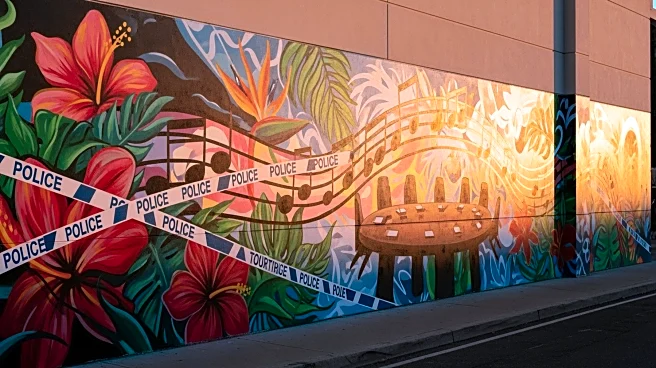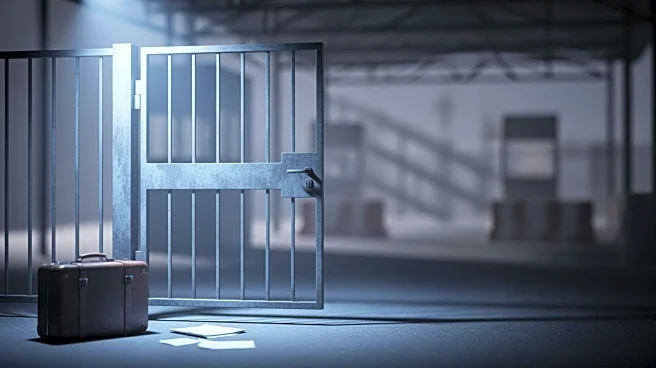What's Happening?
The European Union is considering a plan to train 3,000 Palestinian police officers from Gaza, according to a document. This initiative is part of a broader strategy to enhance security and governance in the region. The document also suggests expanding
the EU's civilian border monitoring mission in Rafah to other border crossing points. This move comes amid ongoing regional tensions and efforts to stabilize the area following the Israel-Hamas conflict. The training program aims to bolster the capabilities of local law enforcement and improve border security, which is crucial for maintaining order and facilitating humanitarian aid.
Why It's Important?
The EU's plan to train Palestinian police officers is significant as it represents an international effort to support governance and security in Gaza. This initiative could help stabilize the region, which has been affected by conflict and political instability. By enhancing the capabilities of local police forces, the EU aims to improve law enforcement and border security, which are essential for peace and development. The training program could also foster cooperation between the EU and Palestinian authorities, potentially leading to more comprehensive support for Gaza's reconstruction and development.
What's Next?
If the EU proceeds with the training program, it could lead to increased international involvement in Gaza's security and governance. The expansion of the border monitoring mission may also facilitate better control of border crossings, which is crucial for trade and humanitarian aid. The success of this initiative could encourage other international actors to contribute to Gaza's development and stability. However, the plan's implementation will depend on political dynamics and cooperation between the EU, Palestinian authorities, and other stakeholders.
Beyond the Headlines
The EU's involvement in training Palestinian police officers highlights the complex geopolitical landscape in Gaza. This initiative could have long-term implications for regional security and international relations. It may also influence the balance of power between different Palestinian factions and affect negotiations for peace and stability in the region. The training program could serve as a model for other international efforts to support governance and security in conflict-affected areas.















